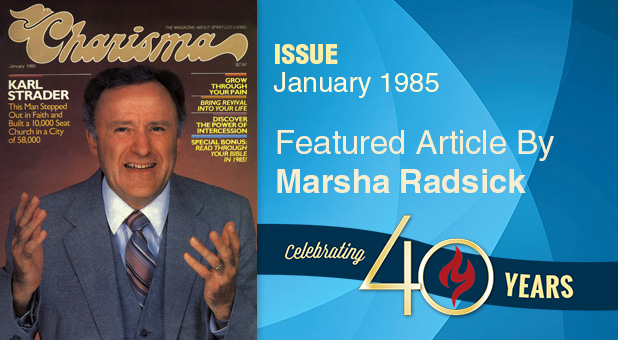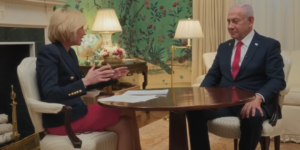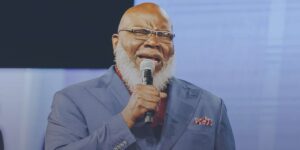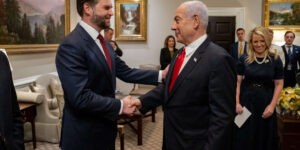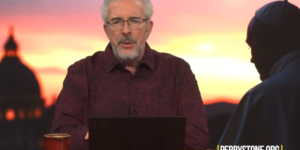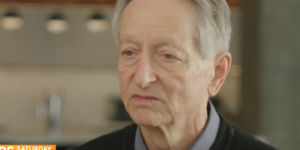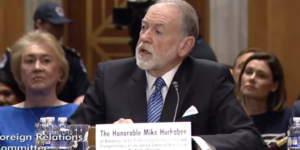When Witch Doctors Tried to Take Reinhard Bonnke Down
The African witch doctors muttered angrily at the world’s biggest revival tent, a modernistic, cream-colored, red-accented, mobile auditorium costing the Reinhard Bonnke Ministries more than $3 million.
As big as three football fields and seating 34,000, the tent had taken four years to construct. In its two months of use throughout the nations of southern Africa, thousands had been saved, delivered from demons, healed of disease and handicaps, and brought into the joy of the Lord.
A curse, the shamans and voodoo practitioners whispered—a curse on this bastion of light pushing back Africa’s centuries of darkness.
We are more powerful than your Jesus, the shamans and voodoo practitioners bragged among the people.
Watch: we will triumph.
Watch.
This white-man’s Jesus—which the Republic of South Africa’s state religion, the Dutch Reformed Church, uses to keep you in poverty and without a political voice—will be defeated.
Ours is the power.
Watch.
In the early hours of Sunday, May 6, 1984, a freak wind whipped suddenly across the Republic of South Africa’s Cape Peninsula. Bonnke’s 438-foot-long, 300-foot-wide tent pitched on the Valhalla Park Sports Field outside of Cape Town, was caught in the unexpected tempest.
Ripped by 90-m.p.h. winds that weathermen were at a loss to explain, the tent’s 22 tons of fiber-glass fabric were shredded into 100 large pieces and uncountable tiny remnants littering nearby neighborhoods.
Under the African moon, the tent’s 12 seven-story-tall masts stood naked and skeletal against the night sky. Pieces of canopy dangled from the enormous tent’s eight miles of steel cable connected to 100 concrete anchors in the ground.
Battered and darkened were $114,000 worth of interior lights-95 floodlamps which had cost $1,200 each. Unscathed was the $4 million worth of 18 6-wheel-drive, all-terrain semi-trucks and trailers used to transport the tent from African country to country.
There was insidious laughter from the darkened sidelines. We have won, the witch doctors taunted.
We have won.
We have won.
Go home, white man, oppressor. You’re not welcome here.
Go home.
“We’re going to drive the devil right out of Africa from Cape Town to Cairo, in Jesus’ precious name,” longtime missionary Bonnke had declared at the tent’s February 18 dedication at a site between Johannesburg and its sprawling black ghetto, Soweto.
Forty thousand had attended that dedication. Many thousands made decisions for Christ, say officials for his Christ For All Nations.
The shamans and voodoo practitioners had watched silently, jealously. Now—as word spread of the tent’s destruction, as rumors grew of the voodoo curse on the tent, as Christian leaders learned of the witch doctors’ growing claims that they had ordered the winds out of the heavens—”We will carry on,” announced Bonnke. “We walk on miracles.”
“But how?” asked members of the local Cape Town crusade committee.
They had just wrapped up nine months of preparations for the meetings scheduled from May 19 through June 6—the beginning of the harsh South African winter.
How could there be any crusade? It would be too cold to hold it outside and the tent had taken four years to construct. No other tent like it existed. No miracle could help—save a divine restoration of the torn fabric.
How could they go on?
Perhaps former street corner evangelist Bonnke’s dreams had been too big.
Maybe he had been unwise, naive—too bold in his shouted defiance of the powers of darkness gripping much of rural Africa.
Perhaps it was time to drop back, ponder strategy and, for now, just cancel the crusade—which could not possibly be held outdoors in the cold.
The devil had won, it seemed.
Perhaps it was time for this 42-year-old missionary from West Germany to go home, or maybe return to his old ministry of playing an accordion on the streets of large cities in south-central Africa?
The son of a Pentecostal pastor from West Germany, Bonnke had felt the call to mission work in Africa at age 10—one year after he accepted Jesus as his Lord. As a youth, public declarations of missionary ambitions brought knowing smiles from adults and mocking from his peers, but little Reinhard felt he’d heard the Lord’s call.
In his teenage years, the urge toward Africa grew stronger. He went to college to study for the ministry—all the time telling professors that he was going to evangelize Africa.
Then, diploma in hand, 25-year-old newlywed Bonnke had finally arrived in Africa in 1967 with support of $110 a month. He and his new wife, Anni, went first to the tiny mountain kingdom of Lesotho shortly after it received independence from Great Britain.
Years of subtle and not-too-subtle ridicule for his lifelong desire to preach in Africa had humbled him, as had years of asking the Lord “when?”—when would he be permitted to finally go to the Dark Continent?
He was, ingrained with a deep determination not to boast of his great ambitions for the evangelism of Africa, nor to bask in the praise of those who approved of his dream. Bonnke was and still is a self-effacing man who unexpectedly tells listeners of his desire to become “truly led” by the Holy Spirit—that is, led in all things, not just a few.
Such talk can be baffling, considering just what the Lord has allowed Bonnke to do in the last five years. But there were no enormous successes in the first years of his African ministry.



